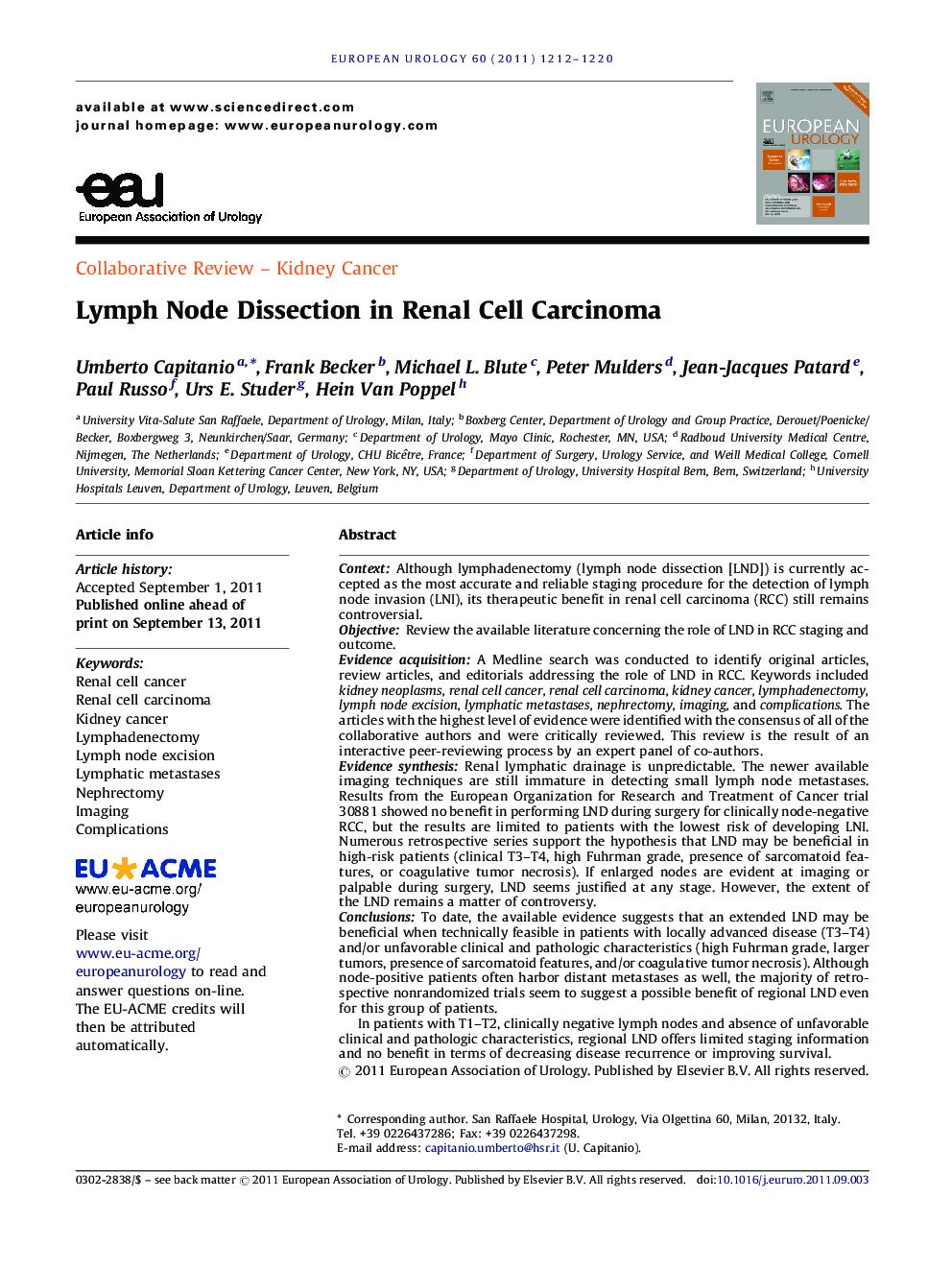| کد مقاله | کد نشریه | سال انتشار | مقاله انگلیسی | نسخه تمام متن |
|---|---|---|---|---|
| 3922948 | 1600011 | 2011 | 9 صفحه PDF | دانلود رایگان |

ContextAlthough lymphadenectomy (lymph node dissection [LND]) is currently accepted as the most accurate and reliable staging procedure for the detection of lymph node invasion (LNI), its therapeutic benefit in renal cell carcinoma (RCC) still remains controversial.ObjectiveReview the available literature concerning the role of LND in RCC staging and outcome.Evidence acquisitionA Medline search was conducted to identify original articles, review articles, and editorials addressing the role of LND in RCC. Keywords included kidney neoplasms, renal cell cancer, renal cell carcinoma, kidney cancer, lymphadenectomy, lymph node excision, lymphatic metastases, nephrectomy, imaging, and complications. The articles with the highest level of evidence were identified with the consensus of all of the collaborative authors and were critically reviewed. This review is the result of an interactive peer-reviewing process by an expert panel of co-authors.Evidence synthesisRenal lymphatic drainage is unpredictable. The newer available imaging techniques are still immature in detecting small lymph node metastases. Results from the European Organization for Research and Treatment of Cancer trial 30881 showed no benefit in performing LND during surgery for clinically node-negative RCC, but the results are limited to patients with the lowest risk of developing LNI. Numerous retrospective series support the hypothesis that LND may be beneficial in high-risk patients (clinical T3–T4, high Fuhrman grade, presence of sarcomatoid features, or coagulative tumor necrosis). If enlarged nodes are evident at imaging or palpable during surgery, LND seems justified at any stage. However, the extent of the LND remains a matter of controversy.ConclusionsTo date, the available evidence suggests that an extended LND may be beneficial when technically feasible in patients with locally advanced disease (T3–T4) and/or unfavorable clinical and pathologic characteristics (high Fuhrman grade, larger tumors, presence of sarcomatoid features, and/or coagulative tumor necrosis). Although node-positive patients often harbor distant metastases as well, the majority of retrospective nonrandomized trials seem to suggest a possible benefit of regional LND even for this group of patients.In patients with T1–T2, clinically negative lymph nodes and absence of unfavorable clinical and pathologic characteristics, regional LND offers limited staging information and no benefit in terms of decreasing disease recurrence or improving survival.
Journal: European Urology - Volume 60, Issue 6, December 2011, Pages 1212–1220